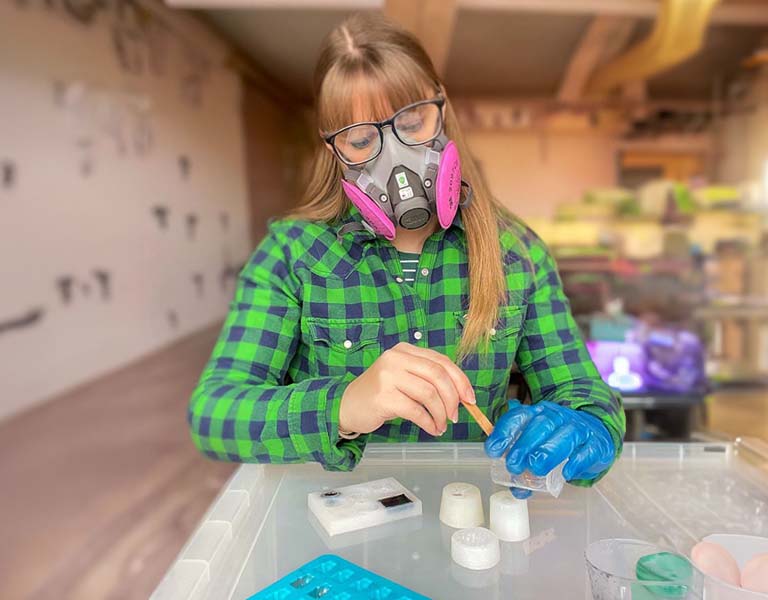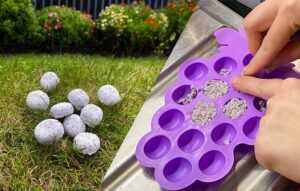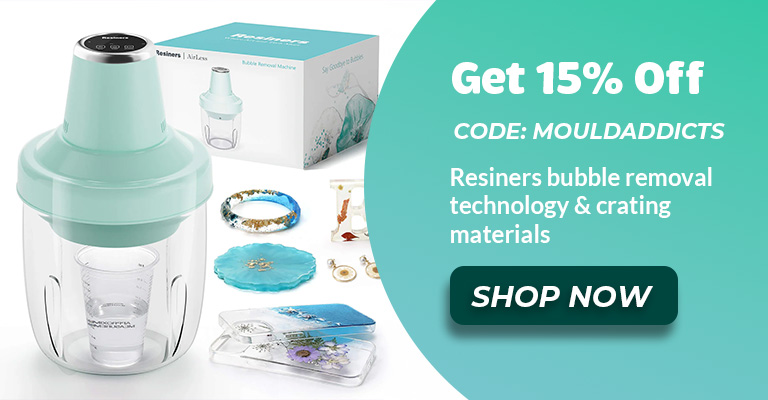Our silicone mold collections seem invaluable, offering versatility and ease of use that few other materials can match. However, to ensure our molds stand the test of time, proper care and cleaning is essential. Now there are a variety of methods to clean silicone molds, some are bette than others.
Here we’ll cover both basic and advanced cleaning techniques, ensuring your molds remain in pristine condition for years to come.
What is the Best Way to Clean Silicone Molds?
When it comes to cleaning your silicone molds, soap and warm water is really all you need.
Invest in a mild, non-abrasive soap that’s specifically formulated for cleaning delicate surfaces. Harsh chemicals can potentially damage the silicone over time, so it’s best to steer clear of those. Look for soaps labeled as “gentle” or “mild” and avoid those containing abrasive particles or strong fragrances.
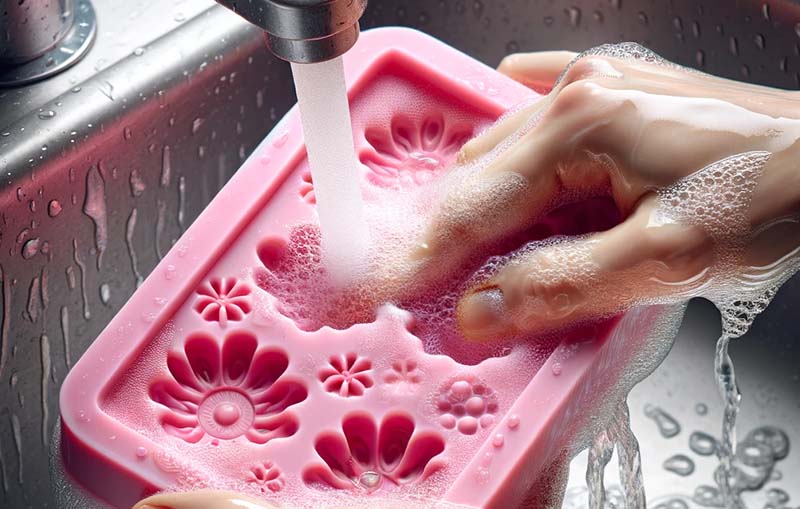
Additionally, a soft-bristle brush or sponge will be useful for getting into those hard-to-reach corners. I’d recommend getting a set of brushes with different sizes and shapes to tackle various mold designs. Just be weary to not over stretch your mold whilst washing as this can potentially cause damage.
Clean Silicone Molds Immediately After Use
Now, here’s a pro tip that can’t be emphasised enough: clean your molds immediately after use! As tempting as it might be to procrastinate, leaving residue to dry and set can make the cleaning process infinitely more challenging. As soon as you’ve removed your casting, give the mold a quick rinse or wipe down to prevent any stubborn buildup.
For baking molds, use a soft-bristle brush or silicone spatula to gently remove any excess crumbs or batter before rinsing under warm water. Soap makers can rinse their molds with a mixture of warm water and vinegar to help break down any residual oils or fragrances. Resin crafters should use a plastic scraper or soft brush to remove any uncured resin before it hardens completely.
No products found.
Can You Clean Silicone Molds with Vinegar?
In short, Yes, you can clean silicone molds with vinegar. It can be an effective and safe method for removing stubborn residue or stains. Vinegar is a natural, mild acid that can help break down and dissolve various types of buildup without damaging the silicone material.
A good ratio is approximately 1 part vinegar to 3 parts water. Let the molds soak for at least 15-20 minutes to allow the vinegar solution to work on loosening any grime or stains.
After soaking, use a soft-bristle brush or a non-abrasive sponge to gently scrub the molds, focusing on any areas with stubborn residue or buildup. The vinegar solution will help to lift and dissolve the gunk, making it easier to scrub away. For particularly tough spots, you can try using undiluted white vinegar and allowing it to sit for a few minutes before scrubbing.
It’s important to note that while vinegar is generally safe for silicone, it’s still a mild acid, so you should avoid leaving the molds soaking for extended periods or using vinegar solutions that are too concentrated. Always rinse the molds thoroughly with clean water after cleaning to remove any remaining vinegar residue.
Casting stuck in the mould? Here are some of the best silicone mould release sprays for resin, wax melts, candles and more
Continue Reading 5 Best Silicone Mould Release Sprays for Easy De-Moulding
How Long do Silicone Molds Last?
While the exact lifespan can vary depending on factors like the quality of the silicone, frequency of use, and level of maintenance, high-quality silicone molds can potentially last for decades with proper care.
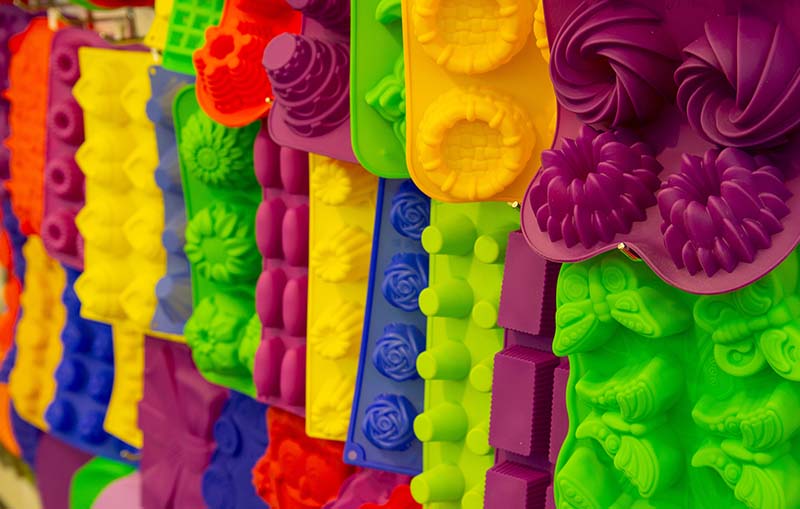
No products found.
Drying and Storing Silicone Molds
Let’s touch on drying and storage. Carefully pat your molds dry with a lint-free cloth or allow them to air dry completely before storing. Avoid storing damp molds, as this can lead to mold growth or other issues.
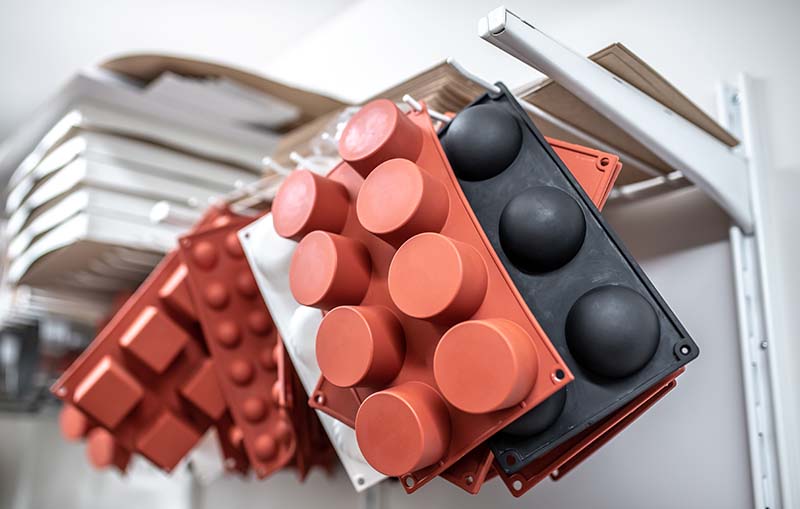
Proper storage is crucial for maintaining the longevity and quality of your molds. Keep them in a cool, dry place, away from direct sunlight and heat sources to prevent discoloration, warping, or mold growth. Consider investing in a storage container or wrapping your molds in clean, breathable fabric to protect them from dust and debris.
How to Clean Silicone Molds – FAQs
How long does the entire process of making a silicone mold take from start to finish, including curing time?
The time it takes to make a silicone mold, including curing, can vary based on the product used but generally ranges from a few hours to a full day
Are there any specific environmental conditions, like temperature or humidity, that affect the quality or success of the silicone molds?
Environmental factors like temperature and humidity can significantly affect the curing process and the final quality of the mold; for example, higher humidity can prolong curing time.
Are there any step-by-step instructions or best practices for beginners who are attempting to make silicone molds for the first time?
Beginners should start with simple projects, follow the product instructions carefully, and ensure they work in a well-ventilated area to avoid inhaling fumes. Here is a step-by-step guide on how to make a silicone mold
